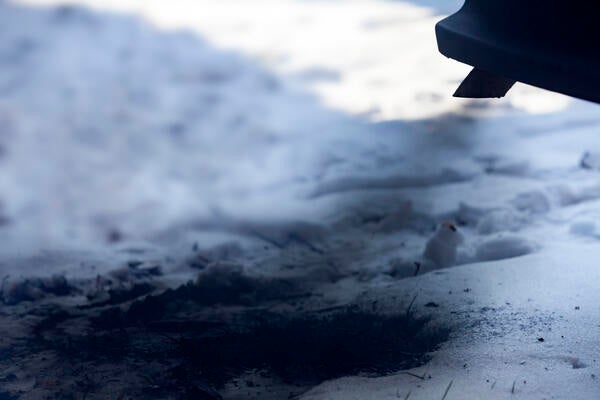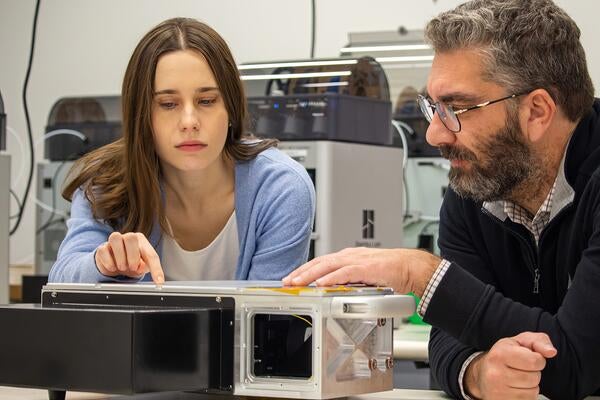
Saving the whales with mathematics
Waterloo professor hopes to support the endangered North Atlantic right whale with models that predict where plankton blooms will occur.

Waterloo professor hopes to support the endangered North Atlantic right whale with models that predict where plankton blooms will occur.
By Staff Communications and Public AffairsAn applied math professor’s calculations of an ocean current in Cape Cod may help the highly endangered North Atlantic right whale to survive.
 Francis Poulin, Professor of Applied Mathematics, University of Waterloo
Francis Poulin, Professor of Applied Mathematics, University of Waterloo
Breaching the boundaries between academic disciplines, Francis Poulin has waded into physics, chemistry, biology, and computer science in an effort to understand, predict, and describe the current through which the whales navigate each spring.
Poulin’s fascination with the Cape Cod Bay current goes back to his days as a grad student at MIT (Massachusetts Institute of Technology). Doing research at the nearby Woods Hole Oceanographic Institution, he became intrigued by the local current, which is influenced by such factors as tides and the topography of the ocean floor.
“When the flow is fast enough, the current becomes unstable and produces vortices,” says Poulin. That’s where whales enter the picture. “When a vortex separates, it takes with it colonies of plankton, important for the feeding cycle of the whale. Hunting whales need to find large colonies of plankton to survive."
“I’m trying to understand the structure of the current, using mathematical equations to describe basic physical properties, such as momentum.” To solve such complex equations, he writes computer programs, draws on his background in physics, and is learning more about biology. Some day he may be able to create models to predict when plankton blooms will occur.
As well, the research could lead to a greater understanding of other oscillating currents. Such currents are common in coastal waters, and have physical properties that are more complicated than currents flowing in one direction.
Poulin is working on a paper about the Cape Cod Bay current along with colleagues at MIT and Scripps Institution of Oceanography, on the U.S. west coast. Last year, he was a co-recipient of the France-Canada Research Fund and is currently in France studying the dynamics of the Bransfield Current System.

A car’s exhaust pipe emits black carbon. This sooty form of pollution alters the “light environment” beneath the snow, affecting plant growth. (Kmatija/Getty Images)
Read more
Research into light and snow interactions provides new insights into how pollution can affect vegetation growth and impact ecosystems

Read more
Phantom Photonics’ quantum remote sensing technology offers precision for industries operating in extreme environments

Read more
How machine learning empowers collaboration between computer science, math and medical research
The University of Waterloo acknowledges that much of our work takes place on the traditional territory of the Neutral, Anishinaabeg, and Haudenosaunee peoples. Our main campus is situated on the Haldimand Tract, the land granted to the Six Nations that includes six miles on each side of the Grand River. Our active work toward reconciliation takes place across our campuses through research, learning, teaching, and community building, and is co-ordinated within the Office of Indigenous Relations.